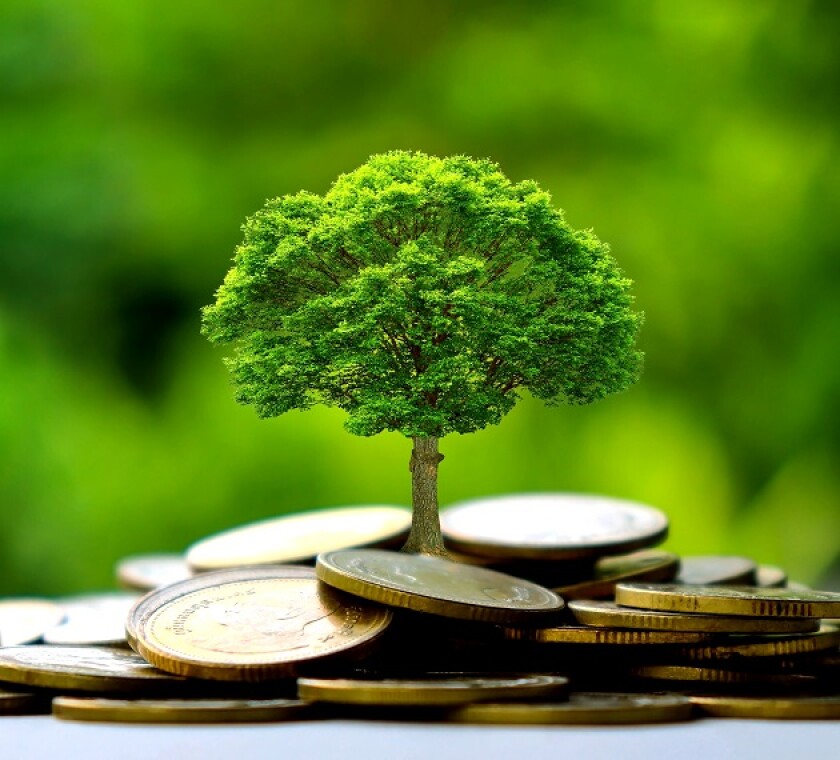Countries have acted rapidly and forcefully to limit the economic hardship caused by the COVID-19 outbreak. Many have taken unprecedented fiscal action and continue to do so as uncertainty remains high and confidence is low.
As countries wrestle with the pandemic and seek to restart their economies, the imperative of decarbonisation remains. The recovery needs to align with decarbonisation or, better, should accelerate it. Selective stimulus spending is one way to decarbonise, but stimulus of course is not only about going green and green stimulus is not necessarily fast stimulus.
Carbon pricing is essential to ensure alignment of broad stimulus programmes with decarbonisation objectives. Carbon taxes or emission permit trading encourage cleaner investment and consumption choices for all public and private spending, reducing CO2 emissions and local pollution. This reduces the risk of stranded assets and stranded jobs in the future. Households and businesses will go low carbon if they know that carbon prices will rise – committing to rising price paths is essential, increasing prices immediately is not.
In her State of the Union address on September 16 2020, European Commission President Ursula von der Leyen made it clear that the EU’s budget and recovery package will be leveraged to further the EU’s climate objectives. The EU’s recovery instrument, NextGenerationEU, aims to spend 37% directly on European Green Deal objectives.
The EU is simultaneously undertaking efforts to strengthen carbon pricing mechanisms. In France, the €100 billion ($117 billion) Plan de Relance presented on September 3 2020 allocates 30% of the stimulus money explicitly to green measures, while the remaining 70% of funds are targeted towards “rearming industry” and ensuring social and territorial cohesion.
Carbon pricing steers towards low carbon choices and can raise substantial revenues. As countries exit from the crisis and economies recover, attention will gradually return to restoring public finances. Raising taxes on labour and consumption, as was done in the wake of the 2008 global financial crisis, will be politically challenging in many countries.
Across OECD and G20 countries, additional revenues from implementing a price of €30 per tonne of CO2 for all energy-related emissions currently priced at lower rates could amount to an increase in tax revenues of approximately 1% of GDP in the short to medium term.
Unlocking low-carbon investments today
Carbon prices are too low to incentivise deep decarbonisation for most energy users and other emitters of greenhouse gases.
At present, 70% of energy-related CO2 emissions from advanced and emerging economies are entirely untaxed and some of the most polluting fuels remain among the least taxed (oe.cd/TEU2019). Emissions trading systems result in significant prices for electricity and industry in some countries, but even combined with taxes, the overall carbon price signals are not in line with decarbonisation targets (oe.cd/ECR2018). Reforming carbon taxes and emissions trading will be necessary to drive decarbonisation.
Advancing carbon price reform proposals during and after the coronavirus crisis requires a careful balancing act. Throughout the pandemic, several taxes are being delayed or reduced to provide support and later stimulus. Increasing carbon prices in such times may appear counterproductive to support measures, even if the economic and environmental case for them remains valid.
Reforms that increase carbon prices for road transport and household energy tend to be unpopular and can raise concerns about their distributional effects. In the current context, flanking policies that preserve or increase the purchasing power of vulnerable groups are more relevant than ever to ensure that carbon price reform is progressive and supports a broader well-being agenda.
Policies seeking higher carbon prices for industry have raised carbon leakage and competitiveness concerns. Carbon leakage, whereby foreign emissions increase because of more stringent domestic climate policies, could make it even more challenging for countries to raise carbon prices. Higher carbon prices can, in principle, adversely affect competitiveness for carbon-intensive sectors (e.g. steel, cement, aluminium) in the medium-term if major carbon price differentials emerge between jurisdictions. Left unaddressed, this could prevent ambitious countries and sectors from raising carbon prices.
Ex-post evaluations of current carbon pricing systems have not identified significant effects on competitiveness and even find that carbon prices can strengthen innovation and productivity. However, current prices are generally low and trade-exposed industries tend to benefit from targeted support, such as generous free allocation of emission permits.
Border carbon adjustments, putting a carbon price on imports of certain carbon-intensive goods, may be one way to enable stronger carbon prices for trade-exposed sectors. However, the implementation of such measures requires addressing significant technical, legal and political challenges, including equity issues vis-à-vis developing countries and interactions with trade regimes. Nevertheless, limiting carbon leakage can strengthen the support for carbon pricing.
Where raising carbon prices is not an immediate policy option, governments should seek to commit to future price increases. Expectations about higher future carbon prices can create strong incentives, particularly for investments in long-lived assets and infrastructure. Strong political commitment to raising prices and long-term climate goals could unlock low-carbon investments today.
The credibility of carbon price trajectories is key to enable investments in low-carbon assets.Statements of intent may not be sufficient to reassure investors. Enshrining a carbon price trajectory into law will strengthen the credibility of commitments compared to announcements on their own.
Potential investors may nevertheless be concerned that future governments will later change these laws. This risk is elevated where support for carbon pricing is divided along party lines and in countries where carbon-intensive assets contribute substantially to GDP. Further developing tools that can help address competitiveness and affordability issues that have held back carbon pricing to date could increase the credibility of carbon price trajectories. Combining stimulus with carbon pricing trajectories, as discussed below, can equally strengthen commitments.
Accelerating environmental tax reform beyond carbon pricing
Providing direct support for abatement efforts, as part of stimulus packages, can help avoid locking in carbon-intensive assets until stronger carbon pricing reforms are politically feasible. This could also facilitate carbon price reform later as it decreases future compliance costs.
Abatement payments could cover the difference between current carbon prices and price levels that are compatible with decarbonisation objectives enshrined in the Paris Agreement. Fiscal costs of such carbon contracts-for-difference could be contained by reserving payments for priority projects relating to essential low-carbon technologies, such as ultra-low carbon materials or carbon capture and storage.
To stimulate the economic recovery, abatement payments could initially be financed with public debt. By gradually raising carbon prices towards target levels, payments could later be phased out without reducing abatement incentives.
Feebates, which are a self-financing system of fees and rebates, could equally steer consumption away from polluting products.Feebates combine product-specific carbon-intensity standards with a fee (a tax) that is due if the product is more carbon-intensive than the standard and a rebate (a subsidy) if the product is more carbon-efficient. They have been shown to substantially encourage the uptake of cleaner motor vehicles. For example, in France, where consumers shift to less polluting vehicles to benefit from the rebate and avoid the tax. If stimulus is needed and fiscal space permits, governments could boost the bonus component during the stimulus phase.
Electricity tax reform could seek to better align energy taxes with climate objectives, and act as stimulus. Most electricity taxes are not differentiated by energy source. By making all energy sources more expensive, irrespective of their carbon content, electricity taxes do not provide direct incentives for the decarbonisation of the power sector. This discourages the electrification of industry, heating and mobility and the transition to clean synthetic fuels. Exempting electricity from clean sources from the electricity tax as in South Africa or reducing electricity taxes across the board could reduce the tax burden on citizens and support climate goals.
Redesigning the tax system to encourage low-carbon investment and consumption choices can thus become a key tool for a successful recovery. Carbon pricing is a core component, but reforming other environmentally related taxes can equally contribute to aligning environmental, social and economic objectives. Feebates and related tools also provide a unique opportunity to combine environmentally-friendly stimulus with an exit strategy that governments can later use to phase out subsidies while maintaining decarbonisation incentives.












